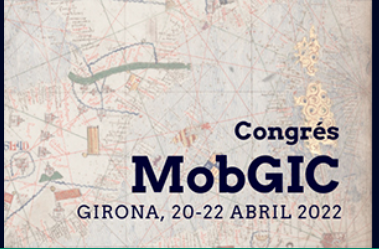
International Congress
GEOGRAPHICAL MOBILITY AND CULTURAL ITINERARIES DURING THE LATE MIDDLE AGES
Universitat de Girona, 20-22 April 2022
Western medieval civilization was a highly intertwined society. Following the 12th century, which saw the flourishing and the peak of a powerful civic and mercantile bourgeoisie, and the progressive increase of the laity’s training needs, various phenomena extended and increased the communications networks and routes that linked different territories of Western Europe. This included the proliferation of religious movements, the birth and development of the universities, and the appearance and consolidation of the mendicant orders. At the same time, power relations were reframed, economic, political, and military expansion projects promoted, and contacts with non-Christian communities and with other religious and cultural spaces intensified.
This congress seeks to take an interdisciplinary approach to a specific aspect of mobility: the relationship between the geographical routes and itineraries taken by texts, books, artworks, and, in their wake, cultural ideas and tendencies. It will give special consideration to the Occitan-Catalan area as the starting, middle, and final points of these journeys. To investigate this topic, the focus will be on figures who are often left on the margins of study: the intermediaries and agents responsible for the transfer culture. Oral accounts, music, written texts, and artworks were all physically and intellectually transported by agents who were often under the cover of anonymity; this includes scribes, translators, minstrels, cantors, artists, and patrons or promoters, but also other figures such as pilgrims, students, clerks, diplomats, and merchants. These all played a fundamental role in developing, disseminating, and circulating ideas, and encouraged cultural and intellectual mobility in Europe.
The congress aims to explore questions including, but not limited to, the following: 1) Which were the roads and routes followed by intermediaries? How did they travel and with whom? 2) Which were the cultural places (courts, monasteries and convents, schools, notarial offices, artistic and scribal workshops, etc.) through which these intermediaries passed? And how did these places evolve? 3) Can we define tendencies in the relation between the circulation of a certain kind of cultural product and existing routes? 4) What impact did the mobility and activities of different cultural agents have on these products? 5) Which contacts were established with cultural agents of different religions?
To explore and discuss these questions invited lectures, a round table with specialists from different disciplines, and paper sessions are planned.
CALL FOR PAPERS
You are invited to submit a 20-minute-long paper in any Romance language or in English.
Proposals must be emailed to the address congres.mobgic2022@gmail.com by the 23rd of December 2021, and must include: 1) author’s full name and institution; 2) email address; 3) paper title; 4) abstract (maximum 2000 characters and 5 keywords).
The proposals will be evaluated by the scientific committee. The outcome will be notified by the organizing committee by the 30th of January 2022. The congress will be held on-site taking into account the health situation. If some of the participants are not able to assist due to restrictions on mobility to prevent the spread of the pandemic, they will be able to deliver their paper on-line.